- Home
- Jacqueline Wilson
Rose Rivers Page 2
Rose Rivers Read online
Page 2
I hoped it might be thought too precious for Rupert to take to school. I planned to sneak into his room and dangle the watch by my ear, listening to its tick, tick, tick. But Rupert begged to take the watch with him.
‘Don’t be ridiculous, Rupe,’ said Papa. ‘It’s an enormously expensive timepiece with any number of jewels, according to your grandfather. It will get broken in the hurly-burly of Kilbourne.’
‘But Rupert loves it so, don’t you, darling,’ said Mama. ‘He must take the watch! My father gave it to him because he wanted him to take it to school. I’m sure the other boys will be impressed.’
‘The other boys will think Rupe a show-off,’ said Papa. ‘Why will no one in this family listen to me when I’m the only member with previous experience of public school?’
‘Now who’s being a show-off?’ said Mama, her cheeks going pink.
Papa looked stung. When it comes to boasting about his background he’s the precise opposite of a show-off. Grandmama and Grandpapa had looked down on him at first, but they’d had no inkling that he came from an aristocratic family. I think his cousins might even be lords and ladies. His parents have a huge country house as big as a palace. When I was little, I imagined it like the pictures in my books of fairy tales: high on a hill, all gothic towers, with attics full of servant girls spinning straw into gold, and underground tunnels chock-a-block with goblins mining for jewels. For all I know it really might be like that. I’ve never been there, never met a single one of Papa’s relatives. He fell out with them long ago because of his dissolute conduct with his art-school friends.
Anyway, last week Rupert went off to school with his trunk and tuck box – and the gold watch on a chain in his brocade waistcoat pocket. Once again Papa tried to persuade him that this wasn’t a good idea, but Rupert still wouldn’t listen.
‘What’s the point of having a splendid watch if I can’t wear it, Pa?’ he said.
‘Look, Rupe, I just want you to fit in at school.’
‘I don’t see why you’re getting in such a fuss about it. I’ve never had any problems fitting in with any of the chaps round here.’
It was true. All the boys in the streets around us want to be Rupert’s friends. The girls too, actually. When we play cricket in Kensington Gardens, everyone wants to be on Rupert’s team. He is always the captain. I have always been so proud that he is my brother.
I miss him so. I’ve written to him every single day, but he hasn’t written back to me once. He has simply sent a short note to Mama and Papa, with a tiny afterthought to me: P.S. Say hello to Rose and the others.
You see, not even my own message! I have to share it with my brothers and sisters. I felt like bursting into tears.
‘Don’t pull that face, dear,’ said Mama. ‘You can’t expect Rupert to write you great long letters. He’ll be terrifically busy with his lessons and his sporting activities and his new friends.’
Papa took me to one side. ‘I’m sure Mama is right,’ he said quietly. ‘But I remember writing letters home when I was at Kilbourne. We were crammed into the common room and there was no privacy whatsoever. We were all required to send a brief letter home to the parents, but any boy writing to his sister would have been mocked and ridiculed. Boys can be very harsh with each other, especially when they’re feeling lost and unhappy.’
‘Do you think Rupert will be feeling lost and unhappy?’ I asked.
‘Of course he will. He’ll be missing home desperately. And I know he’ll be missing you especially, Rose, because you matter so much to him,’ said Papa.
‘Oh!’ I said. ‘Do you really think so?’
So I wrote Rupert an even longer letter telling him how much I missed him. In fact, on the back of it I attempted a comical picture of our entire family assembled in the garden. It was quite a struggle fitting everyone in. I put Mama reclining on a garden chair with Alphonse on her lap at one end, and Papa at the other end, sketching. I assembled us children in age order, leaving a little gap beside me where Rupert belongs. I drew me waving, Beth clutching her favourite doll, Sebastian holding up his pet mouse, Algie sticking out his tongue, Clarrie making a daisy chain, and Nurse cradling baby Phoebe. I drew the servants standing in a row behind: Mr Hodgson the butler, Mrs Harrison the cook, Edie the parlourmaid, Maggie the housemaid, Jack the boot boy, and little Mary-Jane, the general skivvy. I even put Mistletoe the cat up a tree.
Halfway through my hand started aching terribly, but I carried on as a labour of love. Then I begged an envelope from Papa – a large one so my picture wouldn’t get creased. I addressed it to Rupert at Kilbourne and wrote in capitals on the back STRICTLY PRIVATE AND PERSONAL so that no boys would look at the contents and mock or ridicule him.
I’M NOT MAKING any progress with my sketching. I carry the drawing book around with me so it looks as if I’m applying myself, but the pages remain blank.
Papa saw me with it and smiled. ‘How are you getting on, my dear?’ he asked eagerly.
‘Very well thank you, Papa,’ I said. I couldn’t bear to disappoint him.
‘Can I see?’ he asked, holding out his hand for the book.
‘I’d sooner not show you,’ I mumbled.
‘Don’t worry. I understand perfectly. In fact, I like to keep my own sketches to myself,’ said Papa. ‘Still, is it stopping you missing Rupert so much?’
I shrugged. ‘A little.’
Of course, it is having no effect whatsoever. I’m still missing Rupert terribly. I suppose it’s not surprising. In thirteen whole years we’ve never spent a day apart.
‘I wish you wouldn’t fret so, Miss Rose,’ said Nurse. ‘It’s silly moping after Master Rupert. Anyone would think he was your sweetheart, not your brother.’
Nurse had once had a sweetheart – the under-butler from a grand house. He came courting every Sunday, very red in the face, as if he’d scrubbed himself vigorously with carbolic soap. But Papa’s mama had put a stop to Nurse’s outings because little-boy Papa ran away when the housemaid took him to the park and he wasn’t found until after dark. In those days Nurse was the only one who could control him.
Nurse is long past finding a sweetheart now – if she ever truly had one. She rambles a lot, and sometimes I think she makes things up, though the scrubbed red face sounds convincing enough. Poor old Nurse. She certainly won’t be up to looking after our children when we’re grown up. So what will happen to her?
I asked her if she had any savings, and she said, ‘That’s none of your business, Miss Rose. Ladies never discuss money matters, in any case. Now why don’t you please your papa and do some sketching?’
‘I’d sketch Rupert if he were here,’ I said, sighing.
‘Why don’t you sketch one of your other brothers?’
‘Sketch me!’ Algie demanded.
‘No thank you,’ I said. ‘Who would want to draw an ugly little goblin like you?’
Then he kicked me, and I smacked him, and he roared and then bit me. He ended up in the nursery corner and I was sent to my room in disgrace, which infuriated me.
I lay on my bed in a sulk until I heard a whispery little voice in the corridor going, ‘Montmorency! Come here, Montmorency! Where are you, Montmorency?’
I opened my door. My middle brother, Sebastian, was creeping along the corridor, his long pale hair in his eyes as he peered at the floor.
‘Have you let Montmorency Mouse out again?’ I asked.
‘He was squeaking so in his cage, wanting to be petted,’ said Sebastian. ‘I told him I wasn’t allowed to let him out any more, but he wouldn’t listen. I asked him to be a good boy and not try to escape, and I thought he promised, but when I opened his cage he just darted out of my hands and ran out through the door before I could catch him. I’m so worried that Mistletoe will see him and not understand that he’s part of the family.’
‘Mistletoe hardly ever comes upstairs. And he’s too fat and lazy to bother with Montmorency,’ I said, hoping I was right.
I joined Sebas
tian on his mouse hunt. Luckily Montmorency hadn’t got far. We found him hiding behind the thick velvet curtains at the landing window. I grabbed him quickly and we got him safely back in his cage.
‘You are a true heroine,’ said Sebastian. ‘We are so grateful, aren’t we, Montmorency?’
‘Grateful enough to keep very still while I sketch you?’ I asked.
‘Well, I can try,’ said Sebastian, adopting a pose.
I tried too, but it didn’t work. Sebastian looked more like my sister than my brother. Still, I suppose he does in real life too.
I knew that Papa would find my portrayal of Sebastian upsetting, even though I hadn’t drawn him lopsided and his limbs looked the right length. Papa prides himself on being open-minded and unconventional, and he doesn’t give a hoot that his family disapprove of him, but he still has rigid ideas where his children are concerned.
‘I want you to be free to express yourself, my chicks!’ he says, but in practice this simply means letting Algie and Clarrie romp about. It doesn’t mean letting Sebastian wear a ribbon in his hair or dress up in Clarrie’s frilly pinafores, as I suspect he would like to. And it certainly doesn’t mean letting me stride about in breeches and boots or go to a proper school like Rupert.
‘Don’t you want me to be educated, Papa?’ I asked him last night, exasperated.
‘Of course I do! That’s why we employ the redoubtable Miss Rayner,’ he said.
I sighed. When I was Clarrie’s age, Miss Rayner had seemed a sparkling diamond mine of information. I learned all about wild beasts in Africa, and Queen Elizabeth, and caterpillars turning into butterflies. I thrilled at the stories of Noah’s Ark and Moses and the Burning Bush and Daniel in the Lions’ Den. I wrote my own little stories about ‘A Day in the Life of a Penny’ and ‘A Robin’s Nest’ and ‘The Naughty Little Puppy’ (Miss Rayner supplied the titles). I added and subtracted and multiplied and divided, and gloried in the ticks and stars on each page of my exercise book.
Miss Rayner praised me unstintingly, which must have been irritating for my siblings, especially Rupert. He’s very clever, but he’s quick and careless and often makes mistakes. I wonder how he’s managing at school. He will badly want to be top of his form.
I am top of Miss Rayner’s class, but there is no competition now that Rupert is away. Sebastian and Algie and Clarrie are much younger than me. And Beth doesn’t attend to lessons at all. She generally sits in a corner and counts, in her own little world.
Poor Beth. I don’t know how to describe my sister. I think she is quite clever, but Mama says she is backward.
Papa hates her using that word. ‘Beth is simply her own splendid, remarkable self,’ he insists.
He tries so hard to make her happy, reading to her and plying her with presents. Beth still cries a great deal. She frequently has tantrums, even though she is a great girl of ten. Nurse has given up trying to chastise her, because Beth just flings herself on the floor and screams and kicks.
I can never make up my mind whether Beth is deliberately naughty or simply can’t help it. I don’t really know her properly, not like my other siblings. I know what she looks like, of course, and I know what sets her off, and I know the few things she likes (dolls, sparkly things, counting, rocking, repeating what we say) and all the things she doesn’t (too many to list). But I don’t know what she’s like inside. She has such a pretty face, with big blue eyes and long shining dark hair, and when she’s still and silent she looks beautiful. But she is usually shouting and struggling or crouching in a corner, head bent, eyes closed, refusing to communicate at all.
Papa is her favourite. She dislikes Mama. I’m afraid she dislikes Nurse too. Beth doesn’t seem to think much of her brothers and sisters either, not even little Phoebe. Rupert can occasionally charm her. She won’t allow any of us to touch her, but she will let Rupert play Round and Round the Garden with her, and when he tickles her she creases up, squirming and spluttering. It’s the only time she ever laughs.
I wondered if she was missing Rupert as much as me and went to see if she felt like talking about him. When I opened the nursery door, she looked up at once, clapping her hands.
‘It’s just me, Rose,’ I said, sure that she had hoped I was Rupert.
‘Rose. Rose, Rose, Rose!’
‘Oh my, someone’s getting a fancy welcome,’ said Nurse. ‘There now, pet, don’t get over-excited.’
She smiled at Beth anxiously. Nurse has always prided herself on being able to control us. She can usually even bring Algie to heel. But Beth defeats her.
‘I’ve never known such a child,’ she complains. ‘There’s no reasoning with her. I never thought I’d be struggling with such a difficult little girl at my age. She brings shame on my nursery. I hardly dare take her out in case she has one of her turns in public.’
Beth has frequent turns in the nursery. She refuses to share and doesn’t play properly. She commandeers all the bricks and won’t build a castle or a row of houses or a fort – she wants to balance them one on top of the other, placing them with exaggerated care, muttering, ‘One, two, three, four, five, six, seven, eight, nine, ten.’ She makes such a performance of this that I can understand why Algie is often tempted to knock her bricks flying.
She likes building towers with books, though she’s strictly forbidden to do this now because when they fall down, the spines break and the pages scatter. But Beth doesn’t just like building with books, she likes to read them too. I used to think she was only pretending she could read. Miss Rayner gave up trying to teach her because she was so disruptive in the classroom. But when I wandered into the night nursery one day, I discovered Beth sitting cross-legged on the floor reading Pilgrim’s Progress. She was truly reading it, muttering passages to herself while pointing along the lines, so engrossed that she didn’t hear me coming in.
I was amazed. I have been reading fluently since I was four and a half and can tackle most adult books now, but I find Pilgrim’s Progress very heavy going. I can never read more than a page or two at a time, though I like the strange illustrations and I’ve pored over the maps of Christian’s journey.
I marvelled that my strange sister could master the story. Perhaps she liked the sound of a City of Destruction. She’s the source of much destruction in our own house, and she’s certainly often stuck in a Slough of Despond.
I knelt down beside her on the rag rug.
‘I was wondering, Beth. Are you missing Rupert?’ I asked her.
‘Rupert,’ said Beth, looking miserable.
‘I’m missing him terribly too. Do you remember – he’s at school now,’ I said.
‘At school now,’ Beth agreed.
‘I wish I could go to school,’ I said.
‘Go to school,’ Beth said, as if she wanted to go too.
‘It’s not fair. We can’t help being girls, can we?’
‘Can we,’ Beth echoed.
‘I wonder if you really understand or whether you’re simply copying me,’ I said, reaching out and gently pulling her long shiny hair.
I didn’t realize that Beth would count this as touching and start moaning and shuddering.
‘Oh no! I’m sorry. Please don’t start. You mustn’t have a turn because Nurse will get cross,’ I said.
‘Nurse will get cross,’ said Beth mournfully.
‘But it’s your fault, Beth. Why do you always have to make such a fuss?’
‘Make such a fuss.’ She stared down at her hands and then started licking her fingers, counting them under her breath. I tried to work out what she was doing.
‘Are you licking yourself clean like Mistletoe?’
‘Like Mistletoe,’ said Beth. She got up and went over to her row of dolls, which were carefully arranged on the windowsill, and started licking their china fingers too. They sat in size order, from the tiniest thumb-size doll’s-house doll up to big Marianne, who had once been mine. I was long past playing with dolls, but when I looked at Marianne’s blonde curls and blue e
yes I felt nostalgic. I used to like lying her down so that her eyes shut with a little click and then sitting her up so that they opened and she smiled at me.
‘Dear old Marianne,’ I said, going over to the windowsill too. I remembered when she’d been nearly as big as me. I’d had to drag her around, her toes trailing on the floor. Now I could lift her up and hold her in my arms comfortably.
‘No!’ said Beth, getting agitated because I’d moved Marianne. ‘No, no, no!’ It was the only word she ever initiated.
‘Don’t get her started, Miss Rose,’ said Nurse.
I ignored her. I felt I was getting on famously with Beth today. ‘I think Marianne’s horribly stiff from sitting on that hard windowsill day after day. She wants to have a little walk around,’ I said, demonstrating by moving the doll’s legs. I hoped it would amuse Beth, but it made her even more upset.
‘No, no, no!’ she shouted, trying to wrestle the doll away from me.
‘For goodness’ sake, Beth!’ I said, struggling with her. ‘Careful! Watch out or—’
And then it happened. Marianne fell on the floor and banged her head hard – and her eyes disappeared. They fell right into the depths of her china head and rattled there, leaving two dark scary holes in her face.
Beth screamed. She went on screaming and I couldn’t calm her. Neither could Nurse or Edie or Maggie. Mama couldn’t be disturbed because she was entertaining Lady Mirabelle Robson. She’s an interfering, whiskery old woman with the yellow eyes of a goat, but Mama likes her simply because she’s a Lady.
They sent for Papa instead. He thrust Marianne into a cupboard where Beth couldn’t see her, and then tried to comfort her, but she squirmed and kicked, her eyes closed and her mouth square.
‘Dear, oh dear, what a to-do!’ Nurse said. ‘Really, Miss Beth, you’re going to be the death of me. I’m too old for your tricks. Please stop that screaming, for pity’s sake.’
Beth didn’t seem to have any pity. The more Nurse and Papa and I tried to placate her, the harder she screamed. Edie came back in to say that Mama wanted to see me in the drawing room. Lady Robson had departed rapidly. Mama had the curtains drawn and was lying on her chaise longue, a cologne-soaked handkerchief clutched to her forehead. I could barely make her out in the gloom, but there was no mistaking the anger on her face.

 We Are the Beaker Girls
We Are the Beaker Girls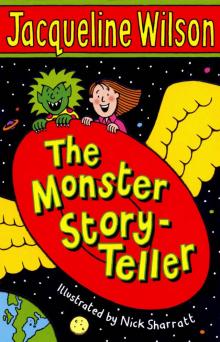 The Monster Story-Teller
The Monster Story-Teller The Worry Website
The Worry Website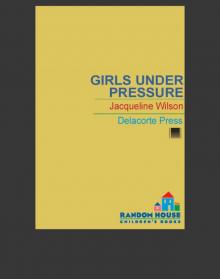 Girls Under Pressure
Girls Under Pressure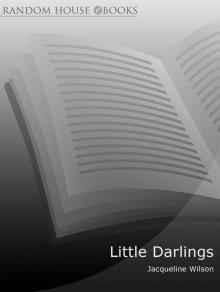 Little Darlings
Little Darlings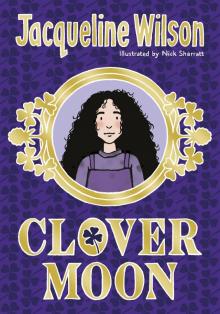 Clover Moon
Clover Moon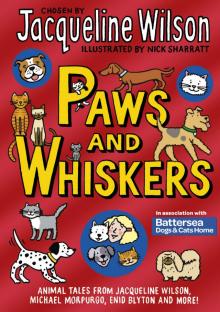 Paws and Whiskers
Paws and Whiskers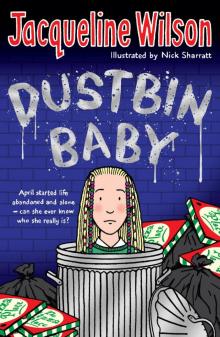 Dustbin Baby
Dustbin Baby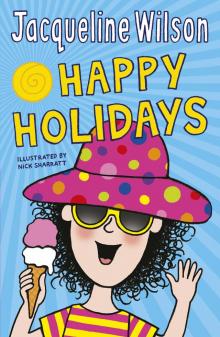 Jacqueline Wilson's Happy Holidays
Jacqueline Wilson's Happy Holidays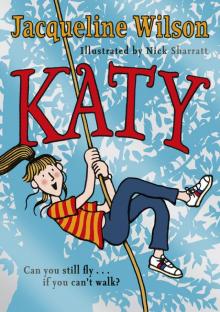 Katy
Katy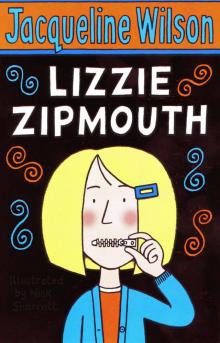 Lizzie Zipmouth
Lizzie Zipmouth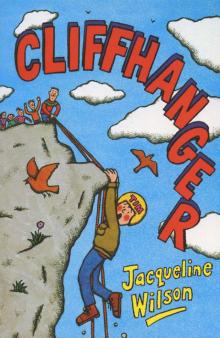 Cliffhanger
Cliffhanger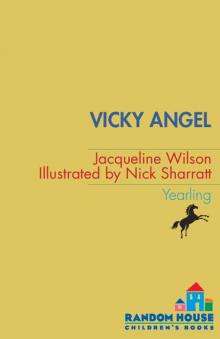 Vicky Angel
Vicky Angel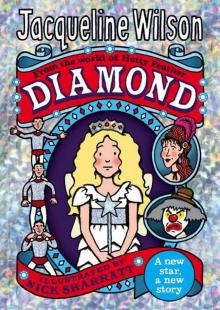 Diamond
Diamond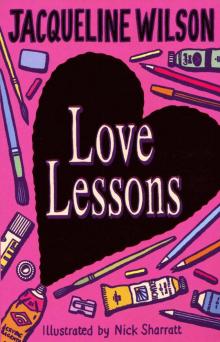 Love Lessons
Love Lessons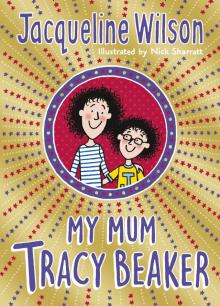 My Mum Tracy Beaker
My Mum Tracy Beaker Lola Rose
Lola Rose Jacky Daydream
Jacky Daydream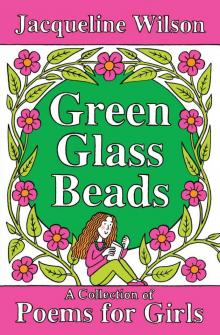 Green Glass Beads
Green Glass Beads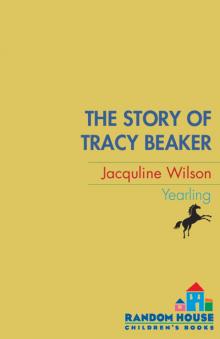 The Story of Tracy Beaker
The Story of Tracy Beaker Clean Break
Clean Break Longest Whale Song
Longest Whale Song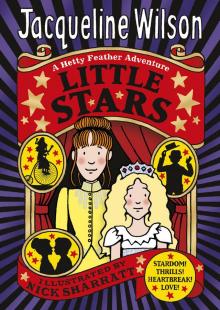 Little Stars
Little Stars Double Act
Double Act The Suitcase Kid
The Suitcase Kid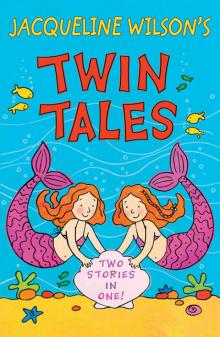 Twin Tales
Twin Tales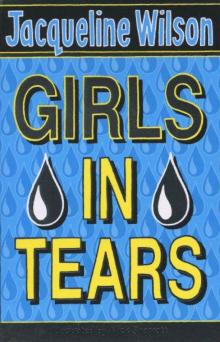 Girls in Tears
Girls in Tears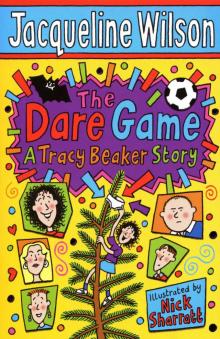 The Dare Game
The Dare Game Diamond Girls
Diamond Girls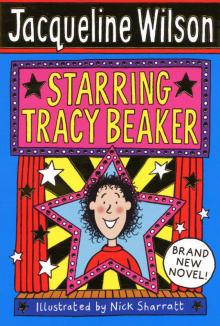 Starring Tracy Beaker
Starring Tracy Beaker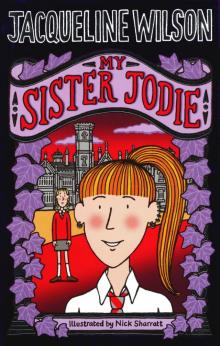 My Sister Jodie
My Sister Jodie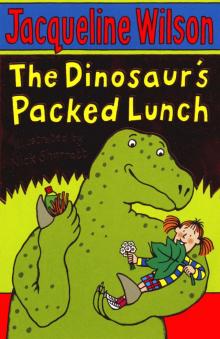 The Dinosaur's Packed Lunch
The Dinosaur's Packed Lunch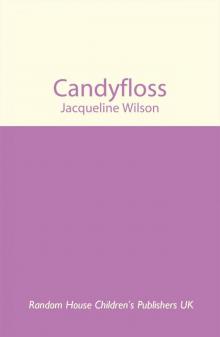 Candyfloss
Candyfloss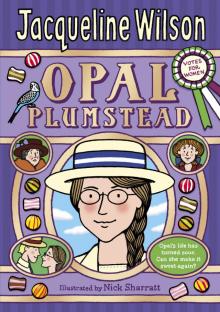 Opal Plumstead
Opal Plumstead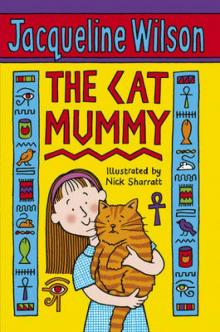 The Cat Mummy
The Cat Mummy Werepuppy and the Werepuppy on Holiday
Werepuppy and the Werepuppy on Holiday Hetty Feather
Hetty Feather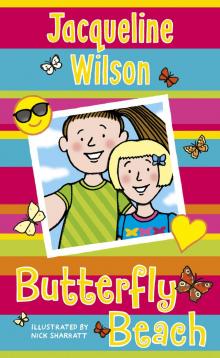 Butterfly Beach
Butterfly Beach Midnight
Midnight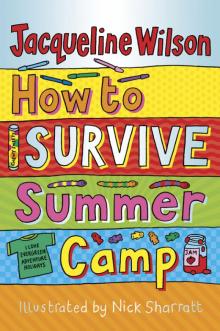 How To Survive Summer Camp (ePub)
How To Survive Summer Camp (ePub)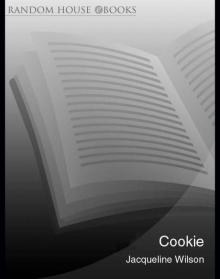 Cookie
Cookie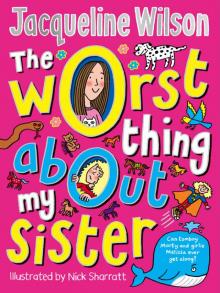 The Worst Thing About My Sister
The Worst Thing About My Sister Bad Girls
Bad Girls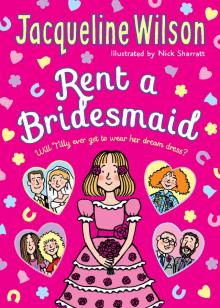 Rent a Bridesmaid
Rent a Bridesmaid Girls in Love
Girls in Love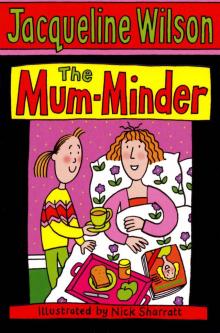 The Mum-Minder
The Mum-Minder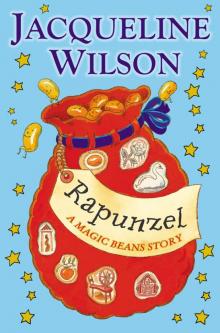 Rapunzel
Rapunzel Lottie Project
Lottie Project Best Friends
Best Friends Video Rose and Mark Spark
Video Rose and Mark Spark Glubbslyme
Glubbslyme Girls Out Late
Girls Out Late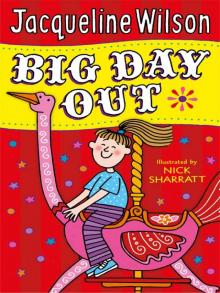 Big Day Out
Big Day Out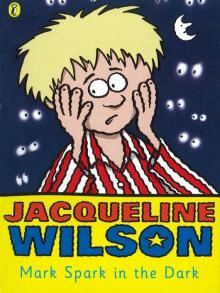 Mark Spark in the Dark
Mark Spark in the Dark Buried Alive!
Buried Alive! Four Children and It
Four Children and It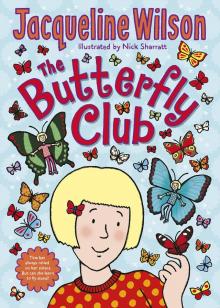 The Butterfly Club
The Butterfly Club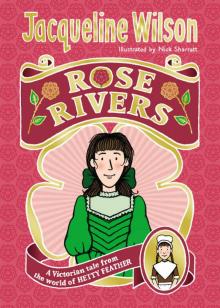 Rose Rivers
Rose Rivers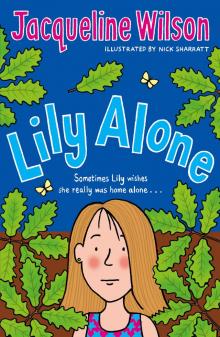 Lily Alone
Lily Alone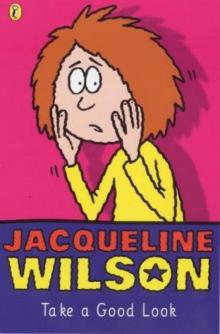 Take a Good Look
Take a Good Look My Secret Diary
My Secret Diary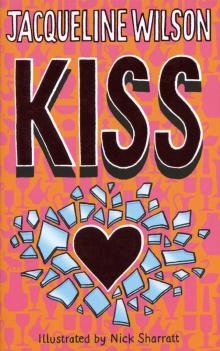 Kiss
Kiss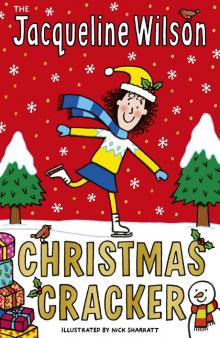 The Jacqueline Wilson Christmas Cracker
The Jacqueline Wilson Christmas Cracker The Worry Web Site
The Worry Web Site Emerald Star (Hetty Feather)
Emerald Star (Hetty Feather) The Bed and Breakfast Star
The Bed and Breakfast Star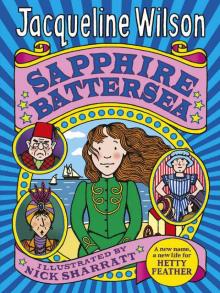 Sapphire Battersea
Sapphire Battersea Cat Mummy
Cat Mummy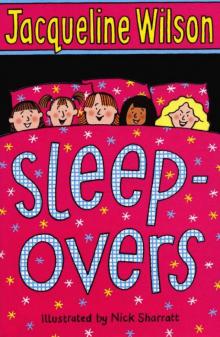 Sleepovers
Sleepovers Dare Game
Dare Game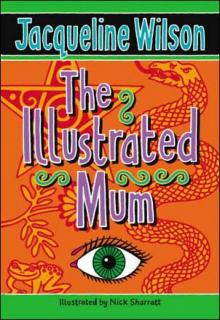 The Illustrated Mum
The Illustrated Mum Secrets
Secrets